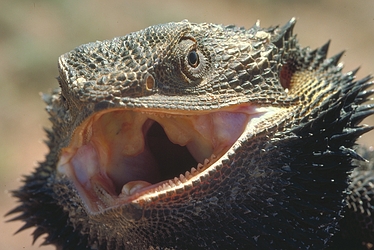10 Tips for Raising a Happy and Healthy Bearded Dragon
Introduction
Bearded dragons are a popular and fascinating pet for beginners and experienced reptile owners alike. They are known for their unique appearance, docile temperament, and relative ease of care. However, like all pets, they require a certain level of attention and care to ensure they live a happy and healthy life in captivity.
1. Housing
The first step in raising a bearded dragon is to provide them with a suitable environment. A typical enclosure should be at least 40 gallons in size, with a screen top to allow for proper ventilation. The enclosure should also include a heat source, such as a basking lamp or ceramic heat emitter, and a UVB light to provide the necessary UVA and UVB rays for your bearded dragon’s health.

2. Substrate
Bearded dragons need a substrate that is both safe and easy to clean. Avoid using sand or gravel, which can cause impactions if ingested. Paper towels, reptile carpet, or tile are great options for substrate. Not only are they easy to clean, but they also minimize the risk of impaction.
3. Diet
Bearded dragons are omnivores and require a varied diet. A typical meal should consist of leafy greens, vegetables, and a protein source, such as insects or cooked chicken. Avoid feeding your bearded dragon toxic foods, such as avocado or spinach, and always provide fresh water.
4. Lighting
As mentioned earlier, bearded dragons require a UVB light to provide the necessary UVA and UVB rays for their health. The light should be on for 10-14 hours per day, and replaced every 6-12 months to ensure the bulbs are providing adequate radiation.
5. Temperature
Bearded dragons require a gradient of temperatures in their enclosure. The basking spot should be between 100-110 degrees Fahrenheit, and the cool side of the enclosure should be between 75-85 degrees Fahrenheit. Use a thermometer to monitor the temperature and adjust the heat source as necessary.
6. Humidity
Bearded dragons require a low humidity environment, typically between 30-40%. Too much humidity can lead to respiratory infections. Use a hygrometer to monitor the humidity, and adjust as necessary. Provide a shallow dish of water for your bearded dragon to soak in if they need to increase their humidity levels.

7. Handling
Bearded dragons are generally docile and tolerate handling well. However, it’s important to give your bearded dragon time to adjust to their enclosure before handling them. Start with short sessions, and gradually increase the length of time you handle them. Never grab your bearded dragon by the tail, as it can detach as a defense mechanism.
8. Health
It’s important to monitor for signs of illness in your bearded dragon. Symptoms of illness may include lethargy, loss of appetite, diarrhea, or respiratory issues. If you notice any of these symptoms, seek veterinary care immediately. Additionally, schedule regular check-ups with an exotic animal veterinarian to ensure your bearded dragon is in good health.

9. Environmental Enrichment
Bearded dragons are curious and active animals, and providing them with environmental enrichment can help keep them happy and healthy in captivity. Add things like branches, rocks, or hiding spots to their enclosure to give them opportunities to climb, explore, and hide. You can also rotate toys and accessories to keep their environment interesting.
10. Research
Finally, do your research before bringing a bearded dragon into your home. They are a long-term commitment, with an average lifespan of 8-12 years. Make sure you are prepared to provide adequate care for the entirety of their lifespan. Additionally, familiarize yourself with local laws and regulations regarding the ownership of exotic pets.
Conclusion
Raising a bearded dragon can be a rewarding experience for both you and your pet. By following these tips and providing proper care, you can ensure your bearded dragon lives a happy and healthy life in captivity. Remember to consult with an exotic animal veterinarian if you have any questions or concerns.
